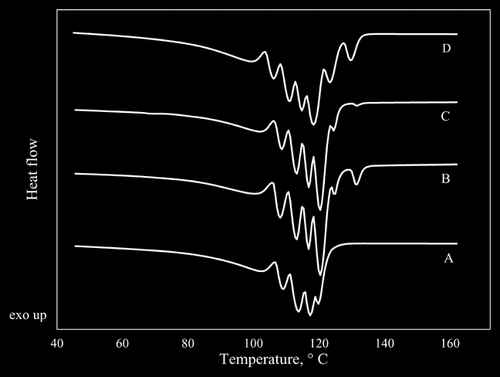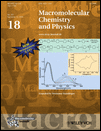(Co)polymerisation Behaviour of Supported Metallocene Catalysts: Carrier Effect
Abstract
Summary: The polymerisation and copolymerisation of ethylene with 1-hexene over metallocene catalysts L2ZrCl2/MAO (L = Cp, n-BuCp, t-BuCp, i-PrCp, Me5Cp) supported on different types of carriers (MgCl2(MeOH)6 or silica with CH3 surface groups obtained in the sol-gel process) were studied. It was demonstrated that both the metallocene structure and the type of inorganic support affected catalyst activity and polymer properties such as melting point, molecular weight and molecular weight distribution. The metallocene structure also determined comonomer incorporation, both for homogeneous and supported catalytic systems. When a catalyst is anchored on a support, it becomes less effective at incorporating a comonomer into the polyethylene chain, and the type of the support material has no influence on that process. The type of carrier used does, however, have an influence on the molecular weight and molecular weight distribution of the product obtained. Most polymers and copolymers obtained with catalysts supported on an oxide carrier have higher molecular weights and broader molecular weight distributions than those produced by catalysts anchored on a magnesium compound.





